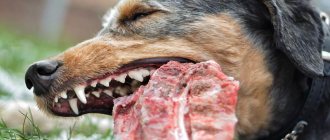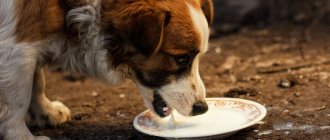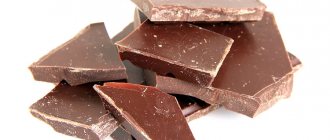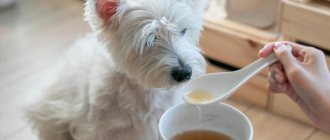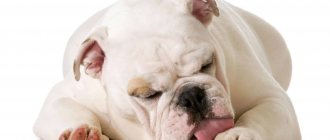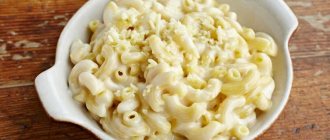Sometimes there are dog owners who offer their pet alcohol. Often, in the midst of a noisy feast, one of the guests may suggest: “Let’s pour it for him too?” After this, the whole company watches the four-legged man sipping beer or a sweet cocktail, and then laughs for a long time at the staggering and nervously spinning animal. No one at that moment thinks about the irreparable harm caused to the dog’s mental and physical health. The question “can dogs drink alcohol” is strange in itself. In the end, it is harmful even to humans.
How alcohol affects dogs
Alcohol affects dogs, just like it does people, in different ways. External signs of intoxication can be expressed in staggering, loss of orientation in space. Some dogs fall asleep soundly or may show restlessness and hyperactivity: barking, howling for no reason, or showing aggression. There are cases where animals, while intoxicated, caused harm and injury to their owners.
At the physical level, the dog’s heartbeat and breathing may slow down, and the functioning of the nervous system may slow down. Large amounts of alcohol can cause cardiac arrest. The “hangover” familiar to many can become unbearable torment for an animal, and can also be accompanied by uncontrollable aggression and dehydration. Ethanol is quickly addictive and causes irreparable harm to your pet’s health with each use. The liver is affected and begins to deteriorate, kidney function is disrupted, blood sugar levels drop to a critically low level and the animal may simply fall into a coma.
Can dogs drink alcohol?
There are pet owners who believe that in case of poisoning or even a dangerous viral disease - distemper - a couple of tablespoons of vodka can cure their pet. Veterinarians warn that dogs are not allowed to drink alcohol in any form or quantity!
Firstly, the dog will quickly become intoxicated. Pets are not resistant to alcohol-based drinks, and they need a minimal dose to become intoxicated, which can be fatal. Signs of intoxication in dogs appear quickly:
- Coordination of movements is impaired, the dog staggers;
- increased salivation is observed;
- the dog will feel sick and vomit;
- the pet tries to move less and lies down on the bedding;
- heart rate increases;
- body temperature decreases.
An intoxicated dog is not funny, but very dangerous. The animal’s body temperature drops sharply to critical levels, the blood sugar level drops, and the heart begins to beat strongly. This condition can lead to seizures and death.
Important!
The lethal dose of 95% alcohol for a dog is 5-6 ml per kg.
What are the dangers of alcoholic beverages for pets? Vodka is ethyl alcohol. Once in the animal's blood, it quickly changes its chemical composition. Acute metabolic acidosis may develop - a violation of the acid-base balance in the body, the accumulation of acids in the blood - lactic, acetoacetic, etc. Any alcohol, even in small doses, inhibits brain function in animals and can cause coma. In addition, it is impossible to determine a conditionally safe dose for an animal. Symptoms of alcohol poisoning in animals always appear clearly:
- weakness and lethargy;
- vomit;
- diarrhea;
- dyspnea;
- fainting;
- dehydration;
- convulsions;
- coma;
- death.
Such symptoms can appear within 1-3 hours after drinking alcohol, and if it enters the body on an empty stomach, then even earlier, gradually increasing in intensity. It is better not to independently treat a dog for alcohol intoxication; at home, you can only provide the pet with peace and warmth, and give fresh water. Everything else - gastric lavage, intravenous injections to remove alcohol from the body and increase glucose levels - should be done by the veterinarian.
Alcohol for plague
Home-grown “experts” advise giving a spoonful of vodka to a puppy or dog if it shows signs of this dangerous viral disease. In no case! Carré's disease (distemper, canine plague) is a serious infectious disease that is very difficult to treat and often leads to death. The use of serums provides little help if the disease is already developing; treatment mainly comes down to maintenance therapy in order to enable the body to produce antibodies that neutralize the virus.
Such a serious disease cannot be treated with vodka and alcohol because:
- the disease affects the gastrointestinal tract, and alcohol enters the intestinal mucosa, further exacerbating their inflammation;
- alcohol disrupts the outflow of enzymes produced by the pancreas, which can cause the development of pancreatitis;
- With any viral disease, many metabolic products are formed in the animal’s body; they need to be removed from the body as soon as possible, which increases the load on the liver. And its “responsibilities” also include the formation of components for the construction of new cells and the production of antibodies to the virus, and the maintenance of carbohydrate metabolism.
When an illness occurs, the load on other organs increases, and alcohol only aggravates the animal’s condition.
Signs of alcohol poisoning in dogs
Symptoms of alcohol poisoning may amuse a drunk company, but not a responsible owner and a loving owner. If you have suspicions that your pet may have been poisoned by alcohol (he licked spilled beer or wine from the floor, one of the guests “treated” him while you were distracted), watch him carefully. The body reacts to ethanol:
- Increased activity or lethargy, drowsiness;
- Loss of coordination;
- Difficulty breathing;
- Frequent urination;
- Decreased body temperature;
- Frequent and severe bouts of vomiting;
- In severe cases, convulsions and tremors.
A very small amount of alcohol is enough for dogs to become intoxicated and the first symptoms of poisoning to appear. In an adult well-fed dog they appear within an hour or two, in a hungry dog after 30 minutes.
You might be wondering: Can dogs eat chocolate?
Alcohol for pets
Pets, cats and dogs, also have the right to relax and drink beer or wine with their owners at the end of the work week, on holidays, or just to lift their spirits.
For your best friend and beer it’s not a pity
You can drink another glass with your four-legged friend without fear that this will lead him to alcoholism.
For example, the dog beer “Happy Tail Ale,” , is made from selected barley and the purest filtered water. It contains no alcohol or gases, but is enriched with glucosamine and vitamin E, which prevents the development of arthritis in dogs. As the owners note, their pets really like non-alcoholic beer with beef flavor.
The Dutch city of Zelhem produces Kwispelbier , also brewed exclusively for dogs. The composition of the foamy non-alcoholic drink includes: meat-flavored extract, cinnamon, honey, ginger and the so-called barley grains - a residue from conventional beer production. But there is no yeast in dog beer. Moreover, beer producers note that the drink is quite suitable for people.
Barking dog beer has been added to the assortment of several hundred brands of Czech amber drink . Non-alcoholic beer is also brewed using malt, meat broth, herbs and vegetables. To prevent people from accidentally consuming this drink, the label of the glass bottle bears an image of a cute shepherd dog and the words “beer for dogs” in large letters.
Non-alcoholic beer Dog Beer , brewed specifically for dogs, is sold in Australian cafes, barbecue stores, and pet stores. The owner of a pet store in Sydney, Elisa Schumacher, and the inventor of the drink's composition, personally tried her invention and Fr.
The Japanese are not far behind in their love for four-legged pets. The dog drink, called "Wan Wan Beer" (Woof-Woof Beer), also does not contain alcohol and is diluted with meat flavoring. The creators of the unusual delicacy noted that after Woof Woof Beer entered the market, people began to contact them with requests to create a similar cat product.
Catnip Wine
Cat lovers believe that their pets are more sophisticated creatures than dogs, so it would be nice to offer them wine instead of beer. The Japanese company Kotaku, which produces pet food under the B&H Lifes brand, has created such a product.
“Nyan Nyan Nouveau” (Meow-meow of the new harvest) is the name of red wine for cats. It contains Franc Cabernet grape juice, vitamin C and catnip herbal tea. And yes, this drink contains a small dose of alcohol, but as the manufacturers assure, it does not harm cats at all.
I tried to diversify the wine list for cats (Colorado, USA). She released two types of wine: white Moscato and red Pinot Meow . This drink again contains catnip and water with the addition of beet juice.
So now pet owners will not have a headache from the fact that their pets do not take full part in family celebrations. And the life of four-legged animals will become much more fun.
First aid for poisoning
If it happens that your pet licks up some of the spilled alcohol before your eyes, then serious consequences can be avoided. Try inducing vomiting with a hydrogen peroxide solution. Salt sprinkled on the root of your dog's tongue will also help induce vomiting. Give your dog activated charcoal (at the rate of 1 tablet per 1 kg of body weight) or any other absorbent.
If you do not know how much alcohol your dog has consumed, you should immediately contact a veterinary clinic. The doctor will be able to do a test and determine the severity of the poisoning and prescribe therapy. First of all, the animal will be relieved of intoxication and the blood sugar level will be restored. Then the dog is examined for the condition of vital organs. Perhaps hepatoprotectors will be prescribed.
Myths about the benefits of alcohol
From older generation dog lovers, when asked “is it possible to let dogs drink alcohol,” you can sometimes hear that vodka and moonshine are a panacea for food poisoning in four-legged dogs. They say that a tablespoon of strong alcohol poured into the mouth of an animal solves many problems. But modern veterinary medicine insists that such methods can only add to these very problems. Well, if this method of “treatment” is abused, you can completely destroy your pet.
There is another dubious “recipe” that says that dogs can and should drink alcohol, and in particular beer. It is believed that brewer's yeast in the drink itself promotes rapid growth of puppies, good weight gain and the growth of a beautiful thick coat. A completely logical question immediately follows - would you give your child beer so that he grows faster or has beautiful and thick hair? Probably no. Puppies are the same as children and alcohol is extremely dangerous for them. Even just a few uses will cause irreparable harm to a fragile body. After all, the destruction of liver and kidney cells is an irreversible process, and treatment can be lengthy, expensive and not always effective.
You may be interested in: What cereals can be given to dogs.
If you give a dog beer
Let's figure it out in order. Beer is alcohol. And alcohol, as you know, is poison. Although beer contains a small percentage of alcohol, this does not change the essence. A dog becomes intoxicated approximately half an hour to an hour after drinking beer.
How quickly this happens depends on the following:
- - on the presence of food in the dog’s stomach and its quantity;
- - amount of beer drunk;
- - age of the dog;
- - size of the dog.
When your dog drinks beer, you will notice the following symptoms in your dog:
- - vomiting containing food that was in the stomach; or vomiting with stomach acid;
- - diarrhea;
- - dehydration;
- - abdominal pain;
- - shortness of breath;
- - hyperactivity.
Even heart rhythm disturbances and even death are possible. But that's not all.
